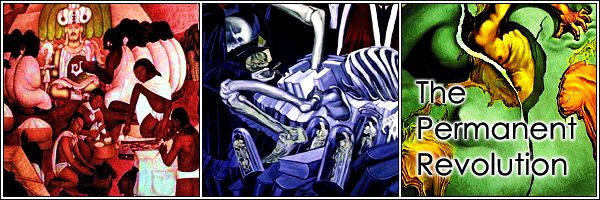When the history books of the future talk about the 1990s and early 2000s, they will probably talk about 9/11, America 'maximalist' foreign policy, and an 'ever-rising' China. If they are written with all fractions of humanity in mind (which may seem naïve), they might include, beside the chapter on the integration of Western Europe, a chapter on the disintegration of Central Africa. In the 1990s, Zaire, the major state in the region, collapsed as an economy and a state. It was invaded twice, once by Rwanda in 1996 and renamed the Democratic Republic of the Congo, and again by several states in 1998 including Rwanda, Uganda, Angola and Zimbabwe. The ensuing wars have led to the deaths of over 3 million people.
A question always asked after major conflicts, from the US Civil War to WW2, is of course why? In the case of the Congo Wars, explanations have included the struggle for resources, ‘tribal wars’, and the power vacuum following the collapse of the Zaire/Congolese state. Here are three books (slim!) which attempt to explain the wars.
Echec aux mercenaries (“Failure for mercenaries”), as the title suggests, covers the first invasion by Rwanda to topple Mobutu’s dictatorship of Congo/Zaire and France’s failed attempts to stop this by means of French, Belgian, Serb and South African mercenaries. It is well-versed in the contemporary French-speaking press.
It is quite good at revealing the attitudes of some French authorities. It quotes a French colonel at that time with a statement which is striking in two ways: “Mobutu? Not a very respectable man, sure, a bit of a scoundrel, cruel even. But why change him? At least we know him! Incidentally, the one who will replace him will resemble him like a brother.” Remarkable, given that Kabila, the man the Rwandans would eventually put in charge of Congo, was very dictatorial himself and accused of being a “Clone of Mobutu”. The colonel then follows up with: “These niggers are net yet ripe for democracy. Will they be one day?” I need not add to that. It similarly has good passages on Frenchmen who believed the war in central Africa was orchestrated by “the Anglo-Saxons” as a conspiracy to replace France’s sphere of influence in Africa.
The main weakness of the book is, natural given that is a published as part of a series of Dossiers noirs condemning France’s policies in Africa, is that it is systematically anti-French and anti-Mobutu. It generously reserves judgment on Rwanda even though it participated in various massacres of people and pillaging of economic resources of the country (this was not 100% clear at the time).
The Congo Wars: Conflict, Myth and Reality is written by veteran Congo scholar Thomas Turner. It is not a narrative of the wars. Rather, the book tries to do many things: the early chapters are wonderful at introducing and contextualizing the conflict, later it describes the belief of Ugandans that Congo is a place where you can steal cars, meet women, and make money, the ways Uganda/Rwanda have plundered Congo, the role of the international community and the elections that have been held since the war ended. The result is a book which is slightly clunky, two chapters of in-depth analysis on the impact of the war in the provinces of North and South Kivu I found a particular slog but unfortunately unenlightening. It is a useful book nonetheless.
The African Stakes of the Congo War is special because it is an edited volume of articles by different authors. This has some disadvantages: the authors don’t all necessarily agree and they are not made to link up. On the other hand, each chapter has to both be short and make a well-argued point, which is always good. The two introductory chapters are very good: John Clark explains the situation in Congo/Zaire that made the war possible very well and Crawford Young very originally puts Congo’s invasion by Rwandan guerrillas in a continental context (IE, pointing out that this sort of thing also happened to Chad, Uganda, Rwanda…).
The other chapters each explain a single theme or factor in the war. I found those on the conduct of individual states to be the best: the reasons behind Rwanda’s and Uganda’s invasions, and Angola’s and Zimbabwe’s interventions alongside the government, are explained as is South Africa’s neutrality. I found the chapter on Rwanda particularly good: it dispels a lot of illusions about Rwanda’s current government, and how its shadier actions (counter-genocide, invasion, economic pillage) tend to get overlooked because these are the same people who ended the Rwandan Genocide (much as Israel was cut some slack in the early years because of the Holocaust). This book, despite a format not usually aimed at non-experts/students, I think is probably the best introduction to the topic.
There is not all that much literature out there on the Congo Wars yet. For most people, if there is any awareness at all, it is a dark blur of rather aimless, incomprehensible violence (spiced with morbid reports of massacres, rapes and, occasionally, cannibalism). These things occur, but they must be comprehensible in some terms, whether it is driven by state-interests (Rwanda/Uganda), state collapse (of Congo), natural resources, ‘tribalism’ (think Bosnia x100) or international neglect (the former Yugoslavia receives loads more per capita aid and troops than Congo). These books are a contribution to understanding ‘the horror’ of war in the Congo, a horror which we should not complacently believe, forgetting our the world's history starting with our own, is unique and limited to Africa.



0 Comments:
Post a Comment
<< Home